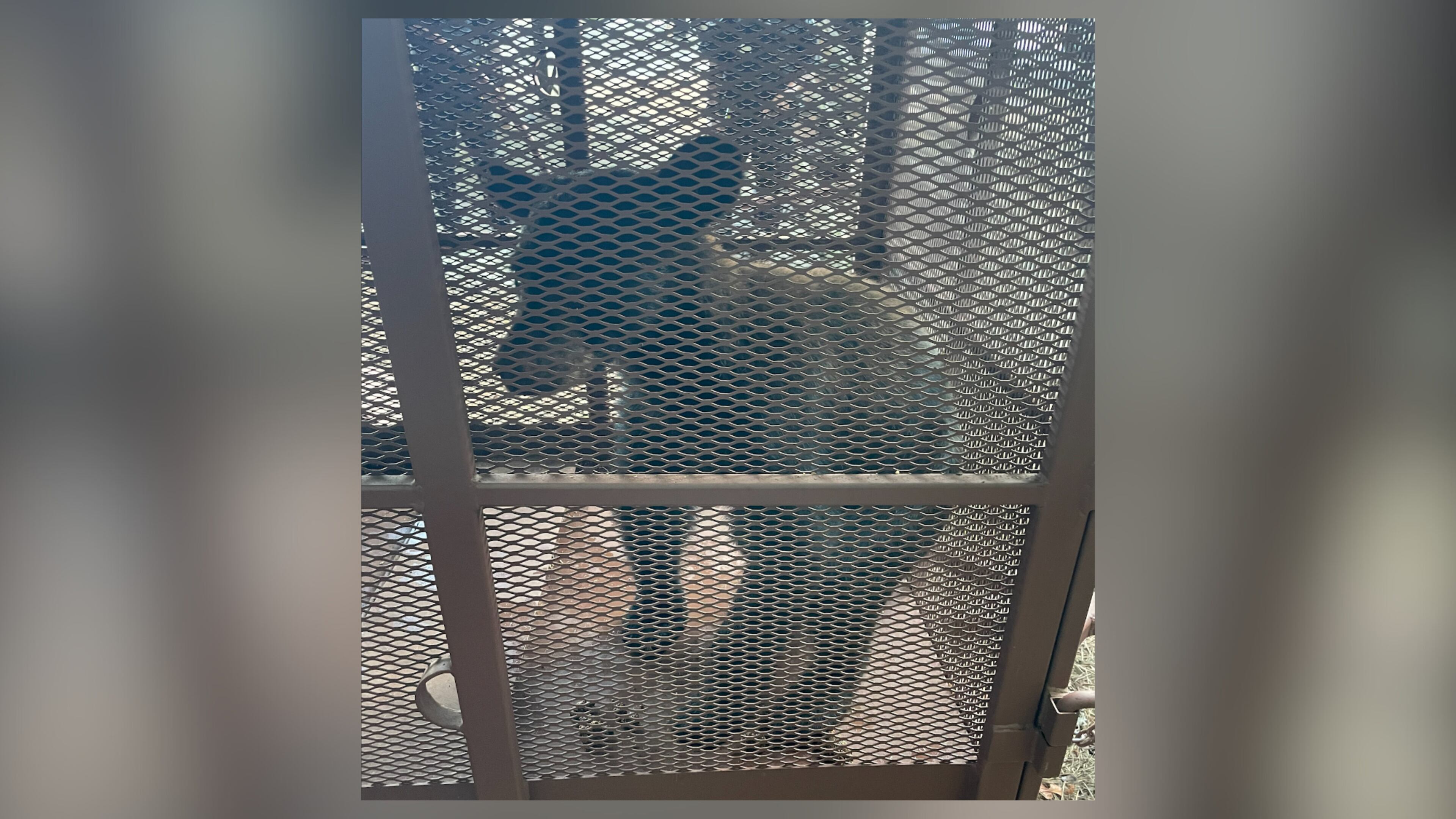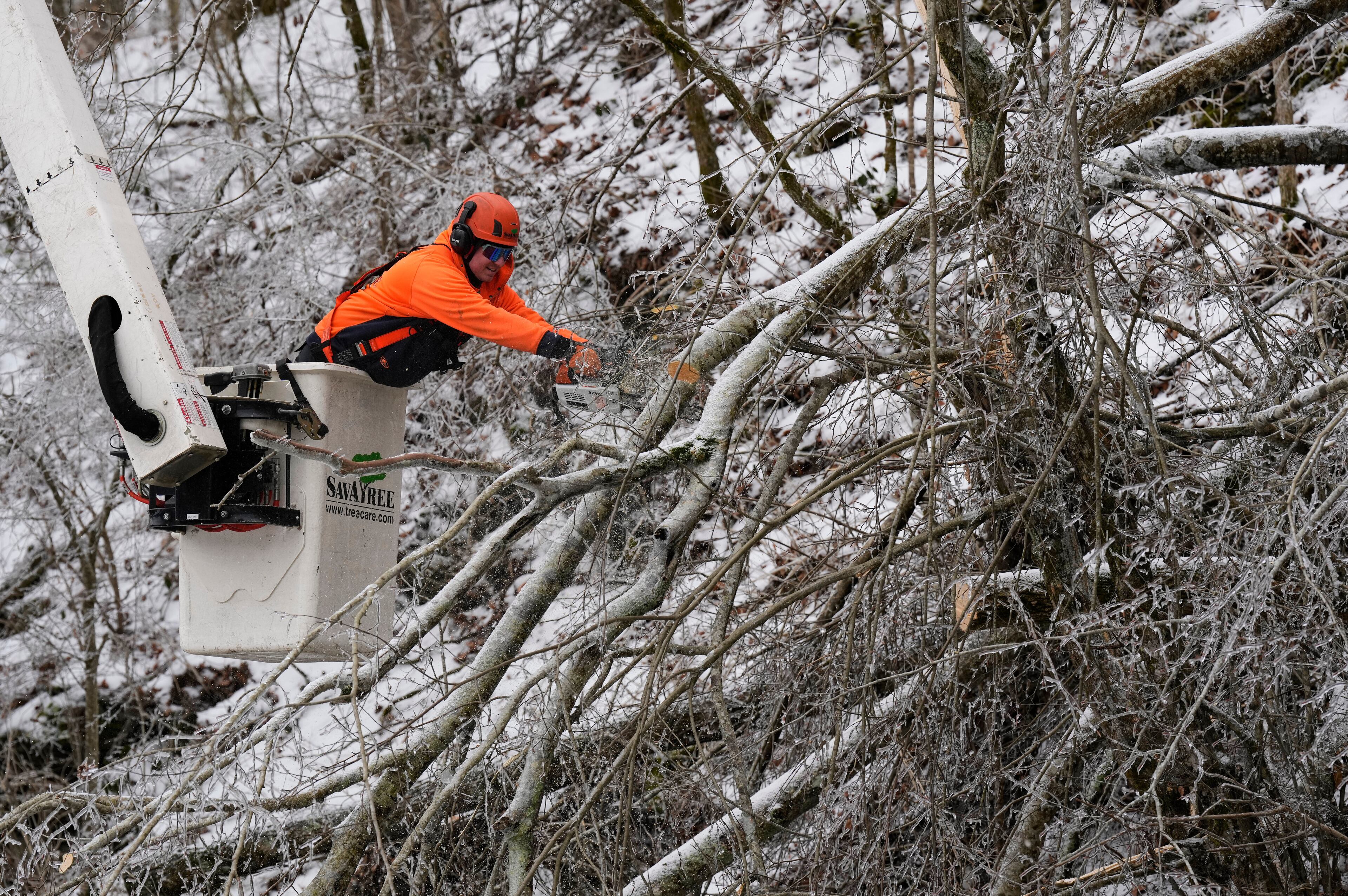Young black bear seen in Cobb safely relocated

A juvenile American black bear that had been spotted around Cobb County was recently relocated to a safer environment, according to officials.
The bear had been hanging out around Dobbins Air Reserve Base, Georgia’s Wildlife Resources Division said. Multiple sightings were reported on social media near Truist Park and the Powers Park area.
It’s hard to know for sure if all of the sightings were of the same bear. But when comparing the size of the bear seen in photos shared online to other objects within the same photos, the social media bear does appear to be “on the smaller side,” division spokesperson Melissa Cummings said.
“So, it is possible it is the same bear as the one relocated,” she said. “However, at this time of year, it is possible for there to be other bears.”
Due to the bear lingering in the highly urbanized area for an extended period of time, the Department of Natural Resources made the decision to set a trap. He was captured Friday, evaluated and then relocated to a “more appropriate habitat,” Cummings said.
That location was not disclosed.
“The best thing that people can do to ensure that any bear does not stay in the area is to keep all potential food sources unavailable,” she said.
That includes pet food, garbage, bird seed and grills.
Black bears are the only species found in Georgia. They’re more active in the summer months, and it’s especially common to see them around the Chattahoochee River.
In April, a large bear was struck and killed by a car along Ga. 400 in Sandy Springs. The driver was uninjured, but the vehicle had extensive damage.
Just a few hours earlier, another sighting had been reported about 10 miles away in Dunwoody. However, it was impossible to determine if it was the same bear, officials said at the time.
Black bears were nearly eradicated from the state in the 1930s due to unregulated hunting and large-scale habitat loss. But proper wildlife management has helped restore Georgia’s black bear population to about 4,100.
Here are a few Department of Natural Resources suggestions:
» Never feed or approach bears: Feeding bears — intentionally or unintentionally — trains them to approach homes and people for more food. Bears will defend themselves if a person gets too close, so don’t risk your safety and theirs.
» Secure food, garbage and recycling: Food and food odors attract bears, so don’t reward them with easily available food or garbage.
» Remove bird feeders when bears are active: Birdseed and other grains have a high calorie content, making them very attractive to bears.
» Never leave pet food outdoors: Feed outdoor pets portion sizes that will be completely eaten during each meal and then remove leftover food and food bowls.
» Clean and store grills: After you use an outdoor grill, clean it thoroughly and make sure that all grease and fat is removed. Store cleaned grills and smokers in a secure area.
» Alert neighbors to bear activity: Share news with your friends about bear sightings.



